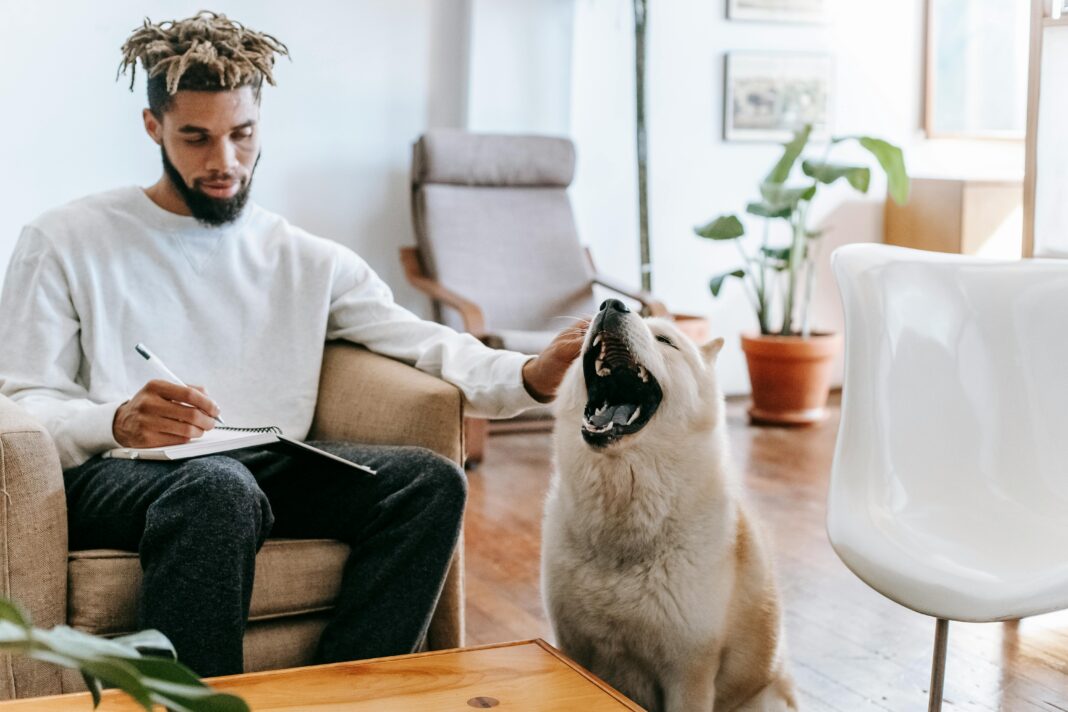When it comes to our beloved furry friends, anxiety can be just as distressing for them as it is for us. As a pet owner, understanding the causes, symptoms, and effective treatments for pet anxiety is crucial in ensuring your pet’s well-being. Here’s a comprehensive guide to help you navigate the world of calming aids for anxious pets.
Understanding Pet Anxiety
Causes of Pet Anxiety
Pet anxiety can stem from various factors. Here are some common causes to consider:
-
- Separation Anxiety: Many pets experience distress when left alone. This is especially common in dogs who form strong bonds with their owners.
-
- Loud Noises: Thunderstorms, fireworks, or even loud music can trigger anxiety in pets.
-
- Change in Environment: Moving to a new home, a change in routine, or the introduction of a new family member (human or pet) can lead to anxiety.
-
- Past Trauma: Pets that have experienced abuse or neglect may develop anxiety due to past traumas.
Symptoms of Pet Anxiety
Recognizing the signs of anxiety in pets is the first step toward addressing the issue. Common symptoms include:
-
- Excessive barking or meowing
-
- Destructive behavior, such as chewing or scratching
-
- House soiling
-
- Pacing or restlessness
-
- Hiding or seeking escape
-
- Changes in appetite
If you notice these signs consistently, it might be time to explore calming solutions.
Diagnosis of Pet Anxiety
Consulting with a veterinarian is essential for proper diagnosis. They might perform a physical exam and review your pet’s history to rule out other health issues that could be causing these behaviors. In some cases, they may recommend behavioral assessments or refer you to a pet behaviorist.
Treatment Options
1. Natural Calming Aids
Several natural remedies and supplements can help soothe anxious pets:
-
- CBD Oil: Derived from hemp, CBD oil is known for its calming properties and can help reduce anxiety without any psychoactive effects. Always consult your vet to determine the appropriate dosage.
-
- Herbal Supplements: Ingredients like chamomile, valerian root, and passionflower are often used in herbal calming products. Look for supplements specifically formulated for pets.
-
- Pheromone Diffusers: Products like Adaptil or Feliway release calming pheromones that mimic the natural scents pets feel comfortable with, thus promoting relaxation.
2. Behavioral Training
Implementing training techniques can also be an effective means of addressing anxiety:
-
- Desensitization: Gradually exposing your pet to anxiety-inducing stimuli in a controlled manner can help minimize their fear.
-
- Counter-Conditioning: This training method involves changing your pet’s negative emotional responses by associating them with positive experiences, such as treats or praise.
-
- Regular Exercise: Physical activity can help reduce anxiety in pets. Regular walks, playtime, or even mental stimulation through puzzle toys can alleviate stress.
3. Prescription Medications
In severe cases, veterinarians may prescribe medication to help manage anxiety. This can include antidepressants or anti-anxiety medications designed specifically for pets. Always monitor your pet closely when starting a new medication, and maintain open communication with your veterinarian regarding any side effects.
Preventive Measures
Creating a Safe Space
Designate a quiet area in your home where your pet can retreat when feeling anxious. This space should include their bed, favorite toys, and perhaps a piece of your clothing to provide comfort.
Routine and Structure
Establishing a consistent routine can help provide a sense of security for anxious pets. Regular feeding, playtime, and walks create familiarity and can significantly lower stress levels.
Socialization
Early and positive exposure to various environments, sounds, and other animals can help pets feel more confident and less anxious about new experiences as they grow.
Practical Tips for Pet Owners
-
- Remain Calm: Animals often pick up on their owner’s emotions. By staying calm during stressful situations, you can help your pet feel more secure.
-
- Interactive Toys: Engaging toys can redirect your pet’s focus and keep their minds occupied, reducing anxiety during stressful times.
-
- Use Calming Music: Certain music designed for pets can have a soothing effect. Try playing soft music during stressful events like thunderstorms or fireworks.
-
- Seek Professional Help: If your pet’s anxiety doesn’t improve with at-home strategies, consider reaching out to a certified animal behaviorist who can provide specialized guidance.
By understanding your pet’s anxiety and knowing the available calming aids, you can create a supportive environment that helps them feel secure and content. Remember that each pet is unique, and what works for one may not work for another. Patience and observation are key to finding the most effective solutions.





